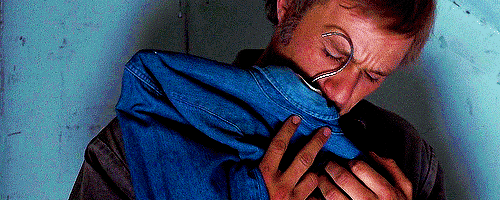"The shirt seemed heavy until he saw there was another shirt inside it, the sleeves carefully worked down inside Jack's sleeves. It was his own plaid shirt, lost, he'd thought, long ago in some damn laundry, his dirty shirt, the pocket ripped, buttons missing, stolen by Jack and hidden here inside Jack's own shirt, the pair like two skins, one inside the other, two in one." -- Annie Proulx, "Brokeback Mountain"
On October 13, 1997, The New Yorker published a short story by Annie Proulx. "Brokeback Mountain" would go on to become not only a watershed moment in queer literature, but in queer cinema as well--Larry McMurtry and Diana Ossanan adapted the short story into a 2005 film directed by Ang Lee, starring Heath Ledger and Jake Gyllenhaal as star-crossed lovers Ennis del Mar and Jack Twist.

Proulx was inspired by a middle-aged man sitting alone in a bar who seemed only attuned to the men playing pool, "which led her to consider the life of a typical western ranch hand who might be gay."
In writing "Brokeback," Proulx wanted to dismantle the "irresistible masculine ideal" of the American cowboy.
"For many, the cowboy image became a potent symbol of American men," Proulx told Out last year as part of a 10-year anniversary oral history of the movie. "It was this confrontation with unreality that the story wanted to show through a look at two characters living in the real world of homophobic closeting."
Related | Brokeback Mountain: 10 Years On an Oral History
"Brokeback Mountain" won an O. Henry Award and netted The New Yorker a National Magazine Award for Fiction; Proulx included a slightly expanded version of "Brokeback" in a 1999 short story collection, Close Range: Wyoming Stories, which was shortlisted for the Pulitzer Prize in Fiction a year later.
The film Brokeback Mountain also won multiple accolades, including Academy Awards for directing, original screenplay, and original score--though it lost out Best Picture to (the otherwise forgettable) Crash.
Nearly two decades after its initial publication, "Brokeback" remains vivid in the imagination. In 2014, an opera written by Charles Wuorinen with a libretto by Proulx, premiered at Madrid's Teatro Real, while a play is expected to premiere in London's West End some time this year.
These works--along with the enduring proliferation of fan fiction, fan art, and porn parodies--prove that Jack Twist was right all along: "Brokeback got us good, don't it?"


























































































